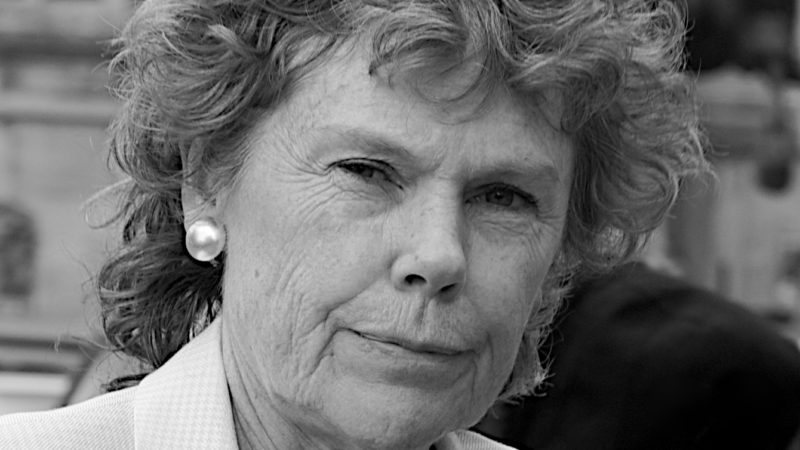
During all my years as an MP, the interest shown by most of my colleagues in Northern Ireland has been minimal. The Labour Party even had to be taken to court by a trade unionist in Belfast before it finally allowed citizens of Northern Ireland to join. Even with over a thousand members there, the party still disallows Labour candidates to stand in elections. So it has been rather ironic that in the Brexit debate Labour MPs have been queuing up to mention Northern Ireland. What happens at the border after we leave the EU has become the ‘big sticking point’ causing the Prime Minister to make commitments to backstops that few understand and even fewer support.
The repeatedly stated aim of the EU, the UK and the Irish government is to avoid creating a hard border. They never actually define what a hard border is, but I assume that they mean not having huge structures acting as barriers with flashing lights and cameras as used to be there. It is conveniently forgotten that those barriers were only there when the IRA was active, bombing and killing our soldiers and police officers. A border is there at the moment, although not visible. The Irish Republic has different excise duties, VAT rates and currency to the UK. Yet all those differences are handled remotely by technology and pre-paperwork. If intelligence arouses suspicion about smuggling, the vehicle will be stopped. In other words, with good will and cooperation, there is no need for any new structures.
The Irish government, in cahoots with the EU, has deliberately made the border an issue and unfortunately our Prime Minister and her officials have fallen for it completely by agreeing to a backstop that would see NI being treated differently to the rest of the UK. Implying that the peace process is threatened by a hard border, even though no-one has said they will build it, is scaremongering of the worst kind. The EU wants to keep us locked in to their regulations and rules: the Irish government is playing hardball even though it would suffer most if the UK were to leave on WTO rules. The Irish PM has behaved rather shamefully with some of his rhetoric and is clearly intent on becoming a future EU commissioner.
The hypocrisy is breathtaking too as his government have already erected a hard border against fishermen from Northern Ireland. Predating membership of the EEC, a 1965 Voisinage or neighbourhood agreement between Northern Ireland and the Republic of Ireland granted reciprocal access to fishermen from each jurisdiction to fish in the other 0 to 6 mile territorial waters, reflecting traditional and historic fishing patterns around the island.
A legal dispute surrounding the harvesting of mussels resulted in an October 2016 judgment by the Dublin Supreme Court advising that whilst the Voisinage Agreement was desirable, there was no constitutional basis in Ireland to support the agreement. Until such time as this was resolved by the Irish government, the decision was made for Ireland to withdraw from the reciprocal agreement. As a result of the Supreme Court’s decision, Northern Ireland vessels are no longer allowed to fish in the 0 to 6 nautical mile zone in Irish waters. Irish fishing vessels continue to benefit from access to fish in British waters around Northern Ireland.
Draft legislation designed to resolve the matter was tabled but resisted by the Irish fishing industry, which lobbied Irish politicians on the basis the matter could be used as leverage against the UK during the Brexit negotiations. Ireland’s fishermen take 40% of their annual catch from British waters. Irish politicians agreed and the legislation designed to resolve the matter has been stalled since March 2017.
Leo Varadkar’s government has erected and maintained a hard border against Northern Ireland fishermen in the hope that this will exert some kind of influence on the UK during the wider Brexit negotiations. Our UK government claims to be maintaining the moral high ground on these issues, but the question arises: how long does the UK keep to the moral high ground when dealing with an Irish government that is taking our goodwill for granted?
When will the Prime Minister speak out and condemn this behaviour? When will she start speaking out in support of British citizens rather than seeming to care more about Irish views? It is this hypocrisy from Dublin that makes it certain that I and many other MPs will not support an agreement with the EU that panders to this kind of behaviour.
Kate Hoey is MP for Vauxhall and campaigned to leave the EU during the 2016 referendum.




More from LabourList
Ashley Dalton resigns as health minister for cancer treatment
Paul Nowak column: ‘Labour must focus on the basics’
‘Labour’s two-child cap victory rings hollow while asylum-seeking children remain in poverty’